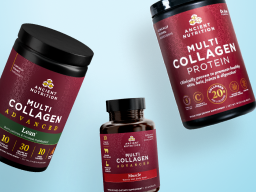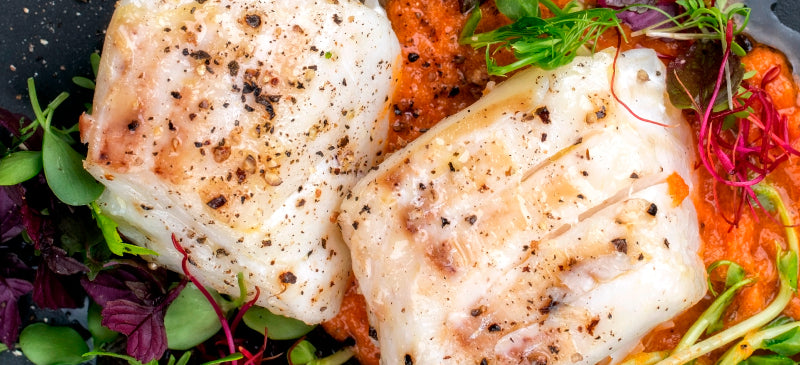Shop by Category
Shop Collagen
Get clinically proven results for your hair, skin, nails, joints and gut with collagen. Packed with powerful ingredients and offered in versatile powders, capsules or gummies.
Shop Organic SuperGreens
From clean energy and detox and digestion support to gut health and whole-body balance – our Organic SuperGreens products give you the benefits of juicing without the hassle.
Shop Protein
Discover superfood protein powders with easy-to-digest ingredients, designed to help you support your metabolism, build lean muscle and be greater than your goals.
Shop Probiotics & Digestion
Put your gut health first. Our powerful probiotics, enzymes and supplements are designed to promote gut health and comfort, healthy digestive function and immune system support.
Shop Vitamins & Minerals
Designed to fill the gaps left by modern diets, our superfood formulas combine ancient techniques like fermentation with clinically proven ingredients for results you can really feel.
Shop Herbals
Explore targeted benefits like building a healthy immune defense, or overall benefits for a healthy life, from history’s most powerful superfood ingredients.
Shop Bundles
Save on intentionally paired supplements to help you achieve your goals. Whether you’re just getting started or well on your wellness journey, there’s a bundle for you.
Our Story
Ancient Nutrition is driven by our mission to bring history’s most powerful superfoods to the world with a steadfast commitment to restoring our farmlands and healing our planet through regenerative farming.
Home/Blog/5 Best Foods High in Collagen (and Your Plan to Boost Collagen Levels)
5 Best Foods High in Collagen (and Your Plan to Boost Collagen Levels)
By Rachel Link, RD, MS
August 13, 2022
Collagen is an important type of protein that many of us may not be getting enough of from our diets, considering it’s not found in typical protein sources like most cuts of meat.
Although supplementation is widely available, including a few servings of collagen-rich foods (see below) and collagen-boosting foods (foods that literally can raise your collagen levels in your body yet don't contain any collagen) in your diet can also help optimize your levels. This in turn is supportive of healthy joints, skin health and gut health.
Which collagen foods are the best ones to focus on? Let’s take a closer look at what exactly collagen does and a few of the top collagen-rich foods to emphasize in your diet.
Why Your Body Craves More Collagen
Collagen is a type of structural protein found in abundance throughout the body in connective tissues, such as the joints and skin. Often considered the glue that holds the body together, it’s generally responsible for supplying suppleness to the skin, keeping your joints moving smoothly, and much more.
As you get older, however, collagen production naturally starts to decline. There are also a variety of lifestyle factors that can interfere with collagen synthesis, such as smoking, too much sun exposure and a poor diet.
Generally speaking, increasing your intake of collagen can help in these areas:
Supports a healthy gut and impacts gut lining integrity
Supports the health of your joints, tendons and connective tissue, impacting comfort and mobility
Helps promote healthy hair, nails and skin, including skin elasticity
Can assist in building muscle
Supports the health of the heart and blood vessels
Using a collagen supplement is perhaps the most easy and effective way to kick up collagen levels, but consuming a variety of collagen foods — and foods that help the health of the collagen your body is already making on its own — are other options to help increase levels.
Best Collagen-Filled Foods
What are the best collagen-filled foods? Foods high in collagen include:
1. Bone Broth
Made by simmering the bones, tendons, ligaments and skin over a period of several days, bone broth is a great source of collagen, along with several important amino acids.
Bone broth is also available in a protein powder, bar or even capsule form for an easy collagen food supplement to add to your routine.
2. Spirulina
This type of algae is a great plant-based source of amino acids like glycine, which is a key component of collagen. Spirulina can be found in dried form at most health food stores and makes a great addition to green smoothies, desserts or juices.
If you're a vegan, you probably know that vegan collagen doesn't exist. Fortunately, consuming spirulina and foods high in vitamin C can help boost collagen production.
3. Cod Fish
Like most other types of white fish, cod fish is jam-packed with amino acids, such as glycine and proline. It’s also high in essential nutrients, such as selenium, vitamin B6 and phosphorus.
However, be sure to opt for Alaskan cod over Atlantic cod, which is a species that is overfished and considered less sustainable.
4. Eggs
Eggs and egg whites, in particular, are some of the top collagen foods thanks to their content of the amino acids that make up collagen, including glycine and proline. Using the whole egg instead of just the egg whites can also supply a steady stream of healthy fats and high-quality protein.
5. Gelatin
Gelatin is a type of protein derived from collagen, which is why it’s considered one of the top collagen-filled foods available. Gelatin can be used in cooking and mixed into soups, stews or broths to bump up the nutritional value of your meal. Gelatin supplements are also widely available in sheet, granule or powder form.
Plan to Boost Overall Collagen Levels
1. Supplement with Collagen Protein
In addition to eating a collagen-filled diet, adding a collagen supplement to your routine is a convenient option for increasing your intake.
Ancient Nutrition’s Multi Collagen Protein powder is made from real food ingredients (like beef, chicken, fish and egg shell membrane collagen) and is made without chemicals, artificial ingredients, sweeteners or flavors.
Simply add a scoop of Multi Collagen Protein powder to smoothies, baked goods, oatmeal, sauces, soups or broths to quickly boost your intake. We recommend between one and three servings daily. (Always read and follow label directions.)
We proudly source our collagen from non-GMO, grass-fed and pasture-raised, cage-free and cruelty-free sources. Our formula is also hydrolyzed, meaning the collagen has already been partially broken down, so the critical amino acids are typically easier to absorb.
You can also try our new Collagen Peptides product that features hydrolyzed and fermented eggshell membrane and bovine collagen, which provides support for healthy hair, skin, nails, joints and gut.
2. Eat Collagen-Filled Foods
Aim to add several servings of foods with collagen to your weekly diet, such as by cooking with bone broth, having 1-2 eggs for breakfast, or making a fish dinner.
3. Consume More Collagen-Boosting Foods
Foods high in antioxidants, especially vitamin C, can help to maintain your body’s collagen stores. Protein foods like meat and fish, plus nutrients including zinc, manganese and copper are also supportive of collagen production. They also represent some great examples of what to eat after a workout.
These foods are some of the best collagen-boosting foods for helping your body to make its own collagen:
Leafy Green Vegetables — Loaded with vitamin C, leafy green vegetables like spinach, kale and arugula are some of the top foods that promote collagen synthesis in the body. Not only does vitamin C act as an antioxidant, but it is also required for the production of type I collagen, which is the most abundant form of collagen in the body.
Pumpkin Seeds — These seeds are incredibly nutrient-dense and also contain around 19 percent of the recommended daily value for zinc in a single serving, which is an important mineral that is integral to collagen synthesis.
Strawberries — Besides being a stellar source of vitamin C, strawberries are considered among the top collagen-building foods because they contain ellagic acid, a type of antioxidant that has been shown to support healthy levels of collagen in the body. Other berries like blueberries, blackberries and raspberries are also high in this essential antioxidant.
Citrus Fruits — Citrus fruits, such as lemon, limes, oranges and grapefruit, are highly nutritious. These fruits are especially high in vitamin C, an important water-soluble vitamin that plays a central role in collagen production. Plus, they’re high in antioxidants, fiber and other micronutrients that help support overall health.
Garlic — Garlic is one of the top foods high in collagen-boosting compounds, such as sulfur, which is thought to support healthy collagen synthesis in the body.
Fermented foods — Probiotic-containing fermented foods such as yogurt, kefir, apple cider vinegar and sauerkraut support the growth of healthy bacteria in your gut, which is important for a healthy immune system and maintenance of healthy cells/tissues throughout your body.
Herbs and Spices — Fresh and dried herbs and spices such as turmeric, ginger, clove, cinnamon, rosemary, parsley, thyme, oregano and others are supportive of healthy immune system function, gut function and digestive health.
Rachael Link, MS, RD, is a registered dietitian based in New York City. She completed her undergraduate degree in Dietetics at the University of Central Missouri and later received her Master’s degree in Clinical Nutrition from New York University. Rachael is passionate about plant-based nutrition and enjoys providing easy-to-understand information to readers looking to support their health.
Related Articles
November 20, 2023
|recipes
Chocolate Chia Seed Pudding That's Also High in Fiber
A chia seed pudding is one of those healthy snacks that many of us, truth be told, have yet to make. Perhaps a chocolate version will convince you to give it a try? It’s worth it!
August 19, 2023
|recipes
Eggless Strawberry Ice Cream
Strawberries make a great flavor for so many desserts, such as strawberry shortcake. But for many, strawberry ice cream is where it’s at.
February 8, 2024
|health
Occasionally Get Tired After Eating? 4 Tips for Fighting It
You have a delicious lunch, go back to work but suddenly start yawning. What is going on? Hmm, well, if you occasionally feel tired after eating, you probably want to know if this is common and if there’s anything you should specifically do to help avoid this happening.
January 12, 2023
|health
Dark Circles Under Your Eyes? Here’s What to Do
If you’ve been occasionally missing out on sleep lately, you’re probably not surprised that dark circles have developed under your eyes. But what types of circumstances can lead to occasional dark circles, including occasionally not getting enough sleep?
- © 2010-23 Ancient Brands, LLC. All rights reserved.
- Terms of Use
- Privacy Policy
- CPRA Privacy Policy/Notice of Collection
- Do Not Sell or Share My Personal Information

